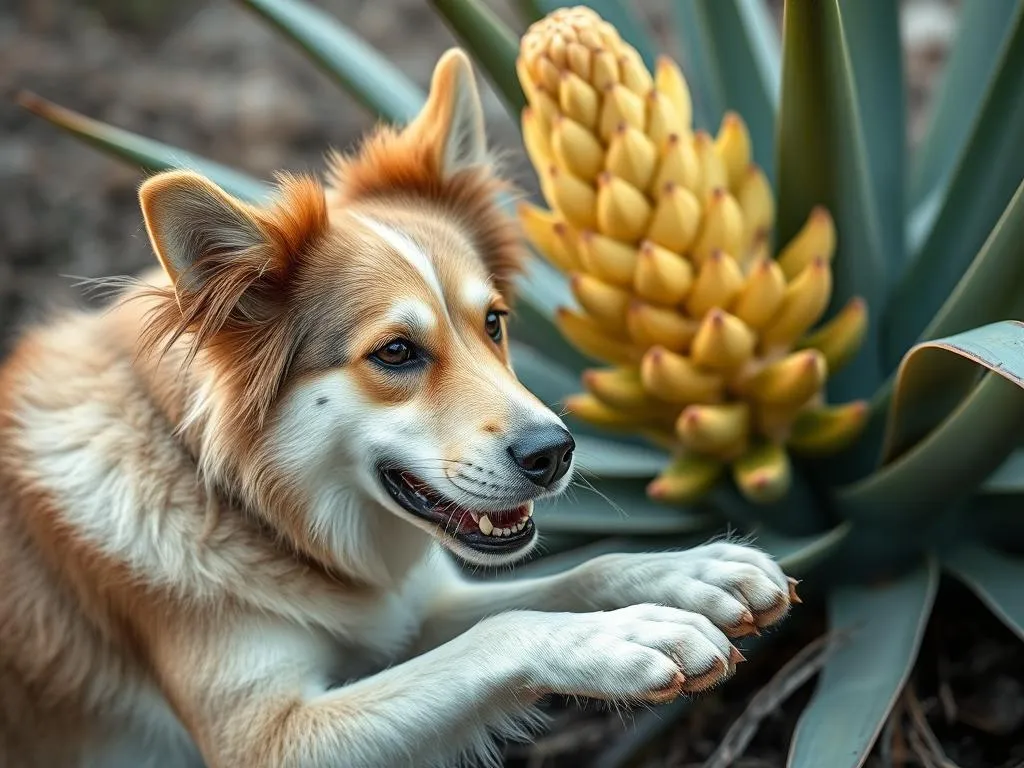
Introduction
A balanced diet is essential for the health and well-being of our canine companions. Dogs require a variety of nutrients to thrive, and understanding what foods can safely be included in their diet is crucial. Pet owners often face dietary concerns, ranging from allergies to obesity, and must navigate the vast array of options available. One such food that has garnered attention is yucca. So, can dogs eat yucca? Let’s delve into the details of this plant, its nutritional profile, safety, and preparation methods.
Understanding Yucca
What is Yucca?
Yucca is a perennial plant native to the hot, dry regions of the Americas. Known for its sharp, sword-like leaves and large flower spikes, yucca has been used for centuries for its various beneficial properties. One of the most commonly referenced species is Yucca schidigera, also known as Mojave yucca, which has gained popularity not only in human diets but also in pet nutrition.
Nutritional Profile of Yucca
The nutritional profile of yucca is quite impressive. This plant is rich in dietary fiber, which can aid digestion. It also contains vitamins such as vitamin C and several B vitamins, as well as essential minerals like potassium, magnesium, and calcium. When compared to other common dog food ingredients like sweet potatoes or carrots, yucca stands out due to its unique combination of nutrients, particularly its high fiber content, which is beneficial for dogs with digestive issues.
Can Dogs Eat Yucca?
Safety of Yucca for Dogs
While yucca is safe for dogs when prepared correctly, there are significant safety concerns regarding its raw form. Raw yucca contains saponins, which can be toxic to dogs if consumed in large quantities. Symptoms of toxicity may include vomiting, diarrhea, and lethargy. Hence, it’s crucial to prepare yucca properly before including it in your dog’s diet. Cooking breaks down the harmful saponins, making it safe for canine consumption.
Benefits of Yucca in Dog Diets
Incorporating yucca into your dog’s diet can offer several benefits. Its high fiber content can promote better digestion, which may be particularly helpful for dogs prone to gastrointestinal issues. Additionally, yucca is known for its potential anti-inflammatory properties, which can be beneficial for older dogs or those with joint issues. Furthermore, yucca may also improve the health of your dog’s skin and coat, giving it a shiny appearance and reducing issues like itching and irritation.
Risks and Side Effects of Yucca Consumption
Despite its benefits, there are risks associated with yucca consumption. Some dogs may have allergic reactions to yucca, which can manifest as itching, swelling, or digestive upset. Signs of yucca toxicity, if improperly prepared, can include vomiting, diarrhea, and excessive drooling. Therefore, it is vital to introduce yucca gradually into your dog’s diet and observe for any adverse reactions. When offering yucca, start with small amounts and consult your veterinarian for guidance on appropriate serving sizes based on your dog’s weight and health status.
Preparing Yucca for Dogs
How to Safely Prepare Yucca
To ensure that dogs can safely eat yucca, it’s essential to prepare it correctly. Here’s a simple step-by-step guide:
- Select Fresh Yucca: Choose firm, fresh yucca roots without any blemishes or soft spots.
- Peel the Skin: Use a vegetable peeler to remove the tough outer skin, as it contains saponins.
- Cut into Pieces: Chop the peeled yucca into small, manageable pieces to facilitate even cooking.
- Boil or Steam: Boil the yucca pieces in water for about 20-30 minutes until they are soft. Alternatively, you can steam them until tender.
- Cool and Serve: Allow the cooked yucca to cool before serving it to your dog. You can mash it or serve it in small chunks.
Serving Suggestions
When it comes to serving yucca to your dog, moderation is key. A general guideline is to offer 1-2 tablespoons of cooked yucca for medium-sized dogs, adjusting according to their weight. Consider mixing cooked yucca into your dog’s regular food for added texture and flavor. You can also incorporate it into homemade dog treats, combining it with other dog-safe ingredients like chicken or carrot for a nutritious snack.
Alternative Ingredients to Yucca
Other Safe Vegetables for Dogs
If yucca isn’t the right fit for your dog, there are plenty of other safe vegetables that can be included in their diet. Here’s a list of commonly accepted dog-safe vegetables:
- Carrots: High in beta-carotene and fiber, great for eye health and digestion.
- Green Beans: Low in calories and high in fiber, perfect for weight management.
- Sweet Potatoes: Rich in vitamins A and C, beneficial for skin and coat health.
- Peas: Packed with vitamins and minerals, and a good protein source.
When to Avoid Yucca
While yucca can be a healthy addition to most dogs’ diets, there are scenarios where its inclusion should be avoided. Dogs with specific health conditions, such as pancreatitis or gastrointestinal disorders, may not tolerate yucca well. Always consult your veterinarian before introducing new foods, especially if your dog has pre-existing health issues.
Expert Opinions and Research
Veterinary Insights
Veterinarians generally view yucca as a safe and nutritious addition to a dog’s diet when properly prepared. Many experts appreciate its potential health benefits, particularly its anti-inflammatory properties. However, they caution owners to be aware of the risks associated with raw yucca. It’s advisable to consult with a vet before making significant changes to your dog’s diet, ensuring that any new foods align with their health needs.
Recent Research Findings
Recent studies have explored the benefits of yucca in canine nutrition, focusing on its ability to aid digestion and reduce inflammation. Preliminary findings suggest that incorporating yucca in moderation may positively impact dogs with joint pain and digestive issues. However, more extensive research is needed to fully understand the long-term effects and benefits of yucca in dog diets. As pet nutrition trends evolve, keeping abreast of scientific findings can help pet owners make informed dietary choices for their furry friends.
Conclusion
In summary, yucca can be a safe and beneficial addition to your dog’s diet when prepared correctly. Its high fiber content and potential health benefits make it an appealing option for many pet owners. However, it’s crucial to be aware of the risks associated with raw yucca and to introduce it gradually into your dog’s meals. Always consult with your veterinarian before introducing new foods to ensure a balanced diet that meets your dog’s specific health needs. By prioritizing nutritional balance, you can help maintain your dog’s overall health and well-being.
FAQs
Can dogs eat raw yucca?
No, raw yucca contains saponins, which can be toxic to dogs. Always cook yucca before serving it to your pet.
What are the symptoms of yucca toxicity in dogs?
Symptoms may include vomiting, diarrhea, lethargy, and excessive drooling. If you suspect your dog has consumed raw yucca, consult a veterinarian immediately.
How often can I feed my dog yucca?
Yucca should be introduced in moderation. It’s best to serve it as an occasional treat rather than a daily staple. Always consult your vet for personalized recommendations.
Is yucca good for dogs with allergies?
While yucca is generally considered safe, some dogs may have allergies to it. Monitor your dog for any adverse reactions when introducing new foods.
By understanding the nutritional aspects and safety measures regarding yucca, you can make informed decisions that contribute positively to your dog’s diet and health.









